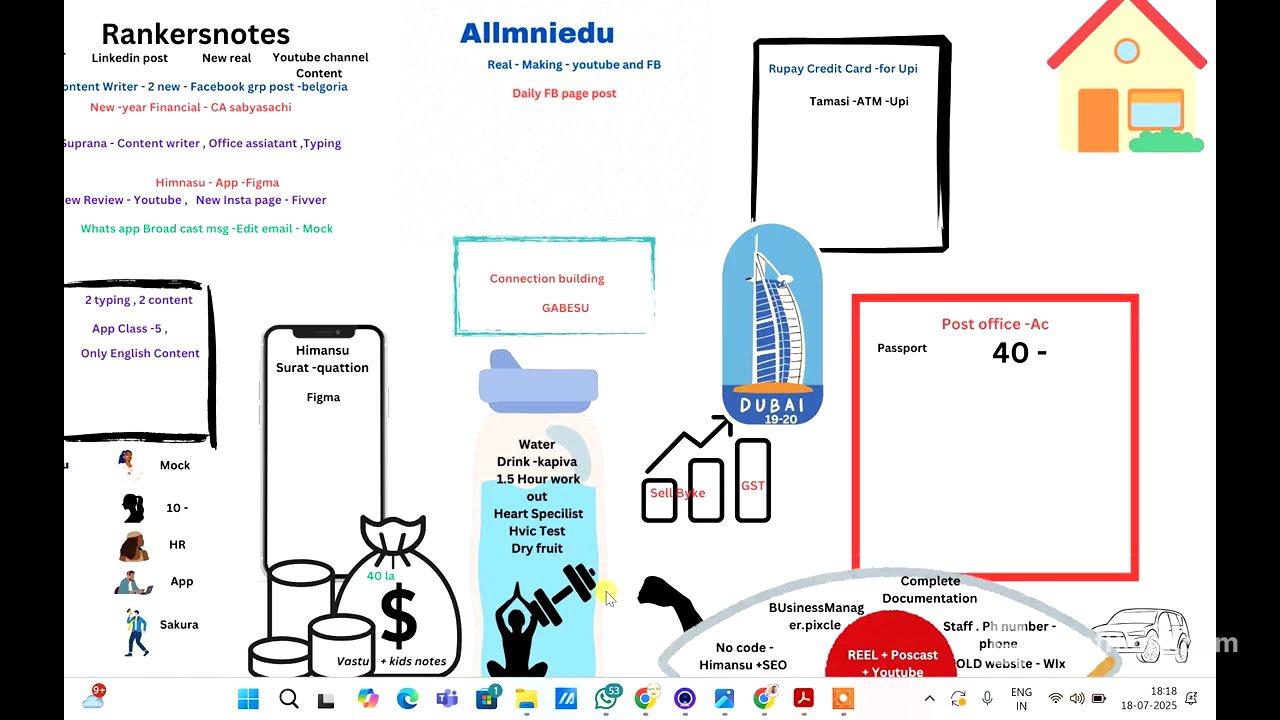TLDR;
This video provides an overview of employment and scholarship opportunities for Indian students in Taiwan. It covers job prospects, top companies, popular programmes and universities, estimated costs, scholarship options, and application timelines. The speaker, who has experience studying and working in Taiwan, compares the education system and job market to India, highlighting the advantages of studying in Taiwan.
- Employment opportunities in Taiwan are better compared to India.
- Many scholarships are available for international students.
- Top companies like TSMC, Foxconn, Apple, Google, and Nvidia recruit in Taiwan.
Introduction: Employment and Study Opportunities in Taiwan [0:00]
The speaker introduces the main topics: employment opportunities for students after their bachelor's, master's, or PhD programmes, top companies in Taiwan, popular programmes and universities for Indian students, estimated costs for different degree levels, and scholarship opportunities. The speaker shares their background, having studied in India (IIT) and completed a PhD in Taiwan, providing a comparative perspective on the education systems. They also mention the importance of scholarships, especially for bachelor's studies, and the application timelines for the fall and spring semesters.
Employment Opportunities in Taiwan [2:52]
It's easier to find a job in Taiwan compared to India. Most Indian students either get jobs or pursue higher studies after completing their education in Taiwan. Many students come to Taiwan for master's degrees and then either join companies or pursue PhDs in the US, Europe, or Singapore. Taiwan faces a talent shortage and is inviting foreign students with scholarships, aiming to retain them in the workforce after their studies. The Taiwanese government is targeting 300,000 international students by 2030. A survey indicates that over 85% of international students prefer to stay in Taiwan after graduating. The government also offers a two-year visa extension for job searching post-graduation, though most Indian students find employment within six months.
Top Companies Recruiting Indian Students [6:13]
Many Indian students are unaware of Taiwanese companies. Taiwanese companies like TSMC (Taiwan Semiconductor Manufacturing Company), Foxconn, and MediaTek are globally recognised. TSMC is a top semiconductor fabrication unit, MediaTek is a semiconductor design company, and Foxconn assembles electronics for companies like Apple. Other prominent companies such as Apple, Google, and Nvidia also have a significant presence in Taiwan. Getting a job in these companies is more common and relatively easier in Taiwan compared to India.
Programmes and Universities in Taiwan [7:49]
There are many universities offering bachelor's programmes, but not all may have intakes in the spring semester. The application process typically begins in July or August. The speaker suggests that they will help identify the best universities based on academic profiles, mentioning that NTU (National Taiwan University) is the best but highly competitive. Other good universities include NTHU and NCKU. The focus is on finding universities that offer good job opportunities after graduation. For master's and PhD programmes, most universities are open in both spring and fall semesters.
Estimated Costs for Studying in Taiwan [10:57]
The costs provided are for English-taught bachelor's programmes, which are preferred by Indian students. There are two types of programmes: Chinese and English. The speaker compares the rankings of Taiwanese universities to those in India, such as comparing NTU to IISc Bangalore and NTHU to IIT Bombay or Delhi. Admission to Taiwanese universities like NTHU or NCKU is easier than getting into older IITs. The total approximate cost, including food, accommodation, and tuition, is similar to or even less than that of top IITs. Many students receive scholarships covering 100% tuition and a monthly stipend, while others may get 50% tuition waivers. Common degree choices for Indian students are engineering (computer science, semiconductor, electronics) and global business (BBA).
Scholarship Opportunities [14:40]
The most well-known scholarship is the MOU scholarship, but it is only for the fall semester. For the spring semester, university scholarships are available. It's recommended to apply for any scholarship for which you are eligible. Fall semesters generally have more intake and scholarship opportunities compared to spring.
Timeline for Admission [15:49]
The admission process typically starts in February, so research on universities and programmes should begin 8-12 months prior. Contacting advisors or professors is more relevant for master's and PhD students. A medium of instruction certificate (TOEFL or IELTS) is important to prove English proficiency. Applications for admission and scholarships should be submitted around August to September, followed by interviews in October and November. Acceptance letters are usually sent in November or December, with visa applications in December or January, and programmes starting in February. Admission and scholarship opportunities are fewer in the spring semester, but this shouldn't be a major concern.
Q&A Session [18:20]
A person with 20 years of experience in Unix administration and cloud virtualisation security asks about MS or PhD options. The speaker suggests going for an MS rather than a PhD due to the shorter duration. The application process is discussed, and viewers are encouraged to contact the presenters via WhatsApp for guidance. The speaker clarifies that the presentation aimed to provide a technical overview of Taiwan and its opportunities.
Further Questions and Clarifications [22:39]
A recent master's graduate asks about PhD scholarship amounts and stipends. PhD students generally receive sufficient funding to cover their expenses and have savings, with stipends ranging from 20,000 to 35,000 NTD (Taiwanese dollars). Master's students may not save as much due to lower scholarship amounts and higher fees. The speaker advises pursuing an MS for better job prospects and shorter duration, as Taiwanese companies often prefer master's graduates. Guidance on applying for scholarships and universities will be provided.
Additional Scholarship and Internship Opportunities [29:57]
Taiwanese companies offer numerous scholarships during summer and winter breaks, providing good savings opportunities through internships. Most Indian students prefer master's programmes in Taiwan due to ample admission and scholarship opportunities. The admission process is lengthy (4-6 months), and support will be provided at every step. MBA options are available, but Chinese proficiency is generally needed to secure a job post-graduation.
Dorms, Health and Racism in Taiwan [32:32]
Dormitories are typically assigned by the college, and most Indian students stay in them. The presenters offer to share any information about health in Taiwan. In terms of racism, the speaker says they have not experienced it in Taiwan. Part-time jobs, such as internships and positions in convenience stores or restaurants (billing and accounting), are available, though most students rely on their scholarship funds.
Final Remarks and Chances of Getting 100% Scholarship [36:52]
Viewers are encouraged to make a decision and start the application process in July. The chances of getting a 100% scholarship in Taiwan are discussed, emphasising the importance of a good academic record and relevant experience. The speaker notes that most students from Taiwan go to US or Europe for further studies. The consultants focus on helping students find the right college and programme, leveraging connections with professors. Data science and AI programmes are also mentioned.









